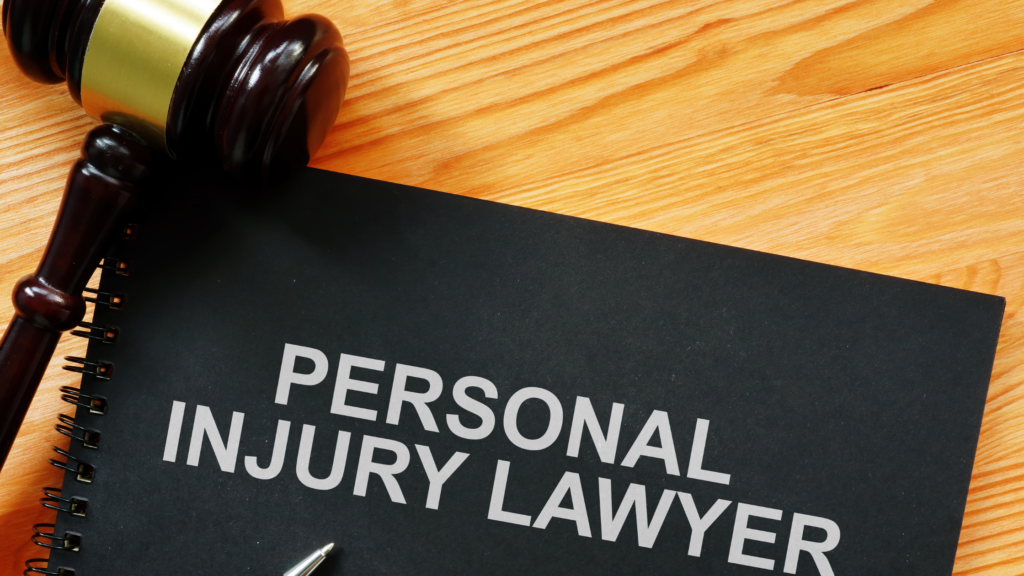Generally speaking, a personal injury lawyer works with you to determine if you have a solid personal injury case. If you do, they’ll represent you to ensure you receive the compensation you are entitled to. It sounds simple but personal injury law is quite complicated and is something you don’t want to take on yourself, especially while you’re focused on recovery.
Before You Talk to a Lawyer
It’s important to engage the services of a personal injury lawyer as soon as possible after the accident. Your lawyer will be the only person who is seeking to protect your legal rights and you do not want to go without their counsel at any stage of the injury claim process. For most cases, the only thing you should be doing on your own is reporting the fact that you had an accident.
Are personal injury lawyers expensive? What if I don’t get a settlement?
Most personal injury lawyers work on a contingency fee basis, meaning that they don’t recover their fees for representing you until you recover compensation from the at-fault party. If you don’t recover any compensation, they don’t either.
Investigation & Initial Demand
Once you contact and retain a personal injury lawyer, the absolute first thing they will do is get as much info as possible about your case. You’ll need to share all relevant details as to the nature and extent of your injuries and a determination of fault for the underlying accident. This may include any or all of:
- medical bills
- medical treatment history
- police reports
- surveillance footage
- witness statements
- photographs, and
- official reports from police or other authorities.
Using this information, your lawyer will determine if you have a case and if you do, they will make an initial demand to the insurer of the liable party (the party who is at-fault).
Placing Parties on Notice
Your lawyer may advise that you do not provide any information or statements to anyone else during this time. They will notify all relevant parties that they are representing you and that all communications should go through their law firm. This is called “Placing Parties on Notice” and it helps to control the flow of information so they can be sure to have a paper trail of all evidence and communications and also reduces the likelihood that you’ll accidentally undermine your own personal injury claim.
Dealing with the Paperwork
After an accident, you may be facing piles of paperwork and interviews. These are challenging enough when you’re in top form; after an accident they can be increasingly scary and confusing. Your lawyer can help with the following while you rest and recover:
- Dealing with the hospital & medical bills
- Working with police officers to answer their questions
- Provide a statement to your insurance company
- Provide a statement to the defendant’s insurance company
- Work with your HR department and your boss if the injury happened on the job
Dealing with Insurance
By this stage of the process, your lawyer will have already submitted the initial demand. If the initial demand results in a settlement offer, your personal injury lawyer will review it with you and recommend how to respond.
Your lawyer will likely want to wait to respond to this settlement offer until there is a full understanding of the scope of your injuries and other losses (such as future medical care, how your injuries may affect your ability to work, etc.).
About personal injury settlements:
- For most cases, the initial settlement offer is rarely the final offer.
- If you and your lawyer cannot reach a settlement with the defendant, you will be encouraged to go to mediation to help resolve the matter before going to trial. This is in your best interest in most cases.
- Roughly 95% of suits filed by personal injury lawyers end in a settlement.
Going to Trial
If settlement negotiations fail to result in a settlement amount you are willing to accept, your lawyer will begin the litigation process and prepare to take your case to court. They will work to ensure you have credible expert witnesses, have your evidence in order, and be ready for admission to court.
You do not want to go to trial without a lawyer. You will be up against an insurance company who will be highly motivated to avoid a payout and who will build a strong case against you. If you do not have extensive knowledge of personal injury law, you will be unlikely to win a trial in court.
Going to trial is often a short affair. Most personal injury trials are as short as a few hours but really complicated ones can occasionally stretch out over several days.
Avoiding Statute of Limitation Issues
Submitting a demand and making a personal injury claim is limited by the statute of limitations, meaning that you have a set window to make a claim before you lose the right to do so. Some claims, such as medical malpractice claims, have a short statute of limitations. If you believe you are a victim of medical malpractice, you should engage a lawyer as soon as you possibly can. Medical malpractice claims can take a long time and require a lot of work so the more time you give your lawyer, the better your claim will be.
Obtaining Legal Recovery
After a settlement is agreed upon or you win at trial, your lawyer will make arrangements to collect the determined compensation from the defendant’s insurance company. If your case settles, you will likely be required to sign settlement and release forms to agree to end your lawsuit and promise not to sue for this claim in the future.
Start with a FREE Consultation
Whether you’ve been hurt in a fall, a car accident or some other occurrence, you need to focus on your recovery while you protect your future. Contact a personal injury lawyer as soon as possible for a FREE consultation to find out if you have a case and to get the process started. Their help will take a load of stress off your shoulders.
Contact us for a FREE Consultation!
Disclaimer: The content on this website is provided for informational purposes only and does not constitute legal advice. To seek legal advice, please contact One80 Law directly to retain a lawyer https://one80law.ca/contact/


